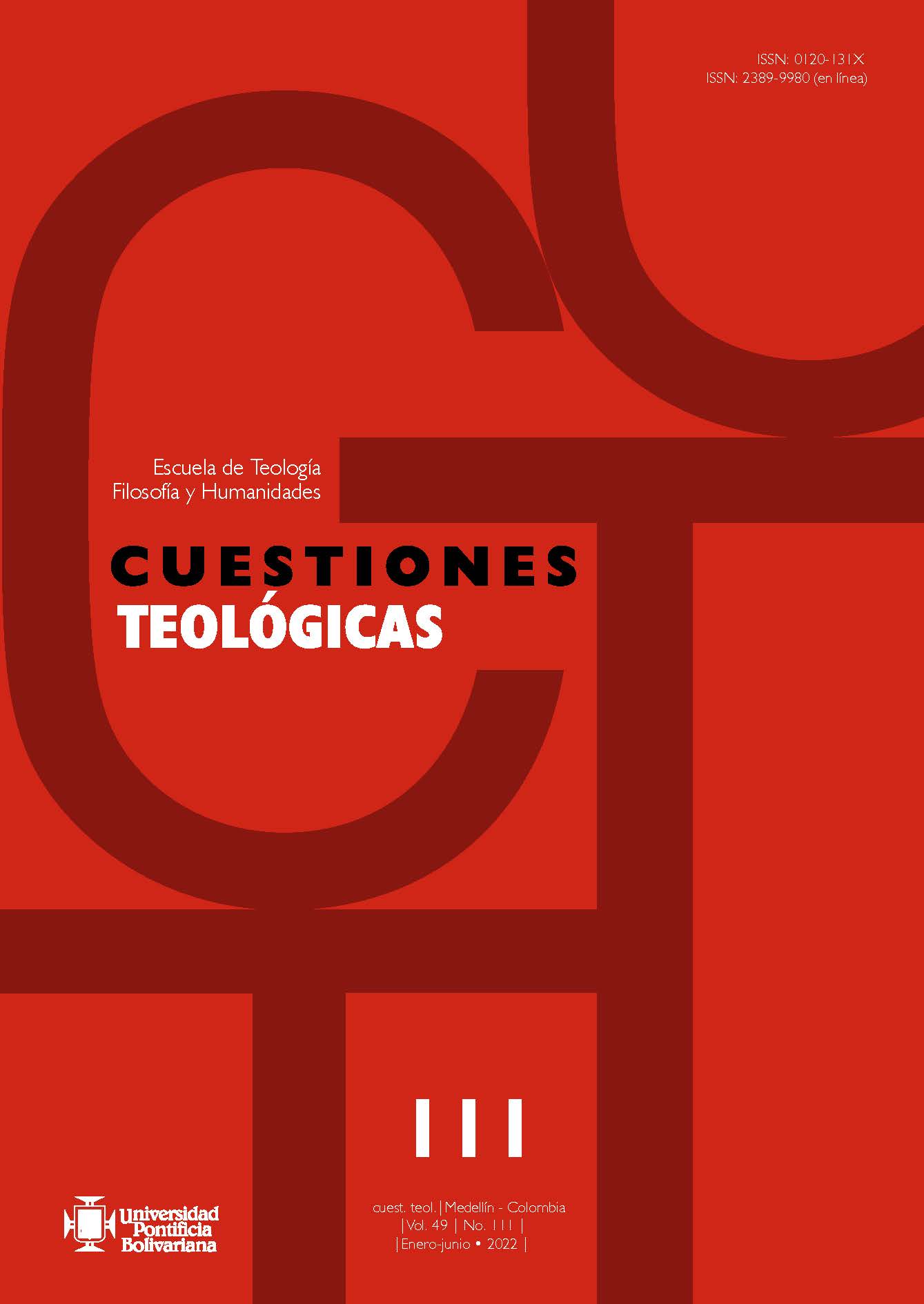Methodological contributions from the dialogue between theology and literature
Main Article Content
Abstract
This article corresponds to a description of an interdisciplinary theological research method, developed in dialogue with the world of literature. At the base is the doctoral tesis titled Theo-literary understanding of salvation: Contributions of the narrative of Alejo Carpentier for a contemporary soteriology. From the precursors of contemporary philosophical hermeneutics (Heidegger, Gadamer and Ricoeur) we obtain the notion of understanding that is at the base of this study (which allows us to think about salvation in the face of existence) and the method that gives its general structure to research (pre-understanding, expansion of the understanding horizon and re-understanding). The research question and the analytical perspective are provided by theology (first moment). For the expansion of the understanding horizon (second moment), literature plays a key role. Regarding its contribution, two complementary levels stand out: the anthropological and the sociohistorical, from which a vision of reality transfigured by the literary work is obtained. In this way, dimensions of reality are reached that are normally concealed and remain hidden from our eyes. The crossing of the first and second part (third moment) results in an interesting theo-literary exercise of undoubted richness for theological thinking. In the description of this research method, hence its importance, the value that dialogue with the world of literature has for theology is highlighted, in this case, when faced with the question that the human being exists and directs to the Holy Mystery of which they depend on their liberation, transcendence, meaning and hope, ultimately, their salvation.
References
Blanch, A. (1996). El hombre imaginario (2.ª ed.). PPC.
Cortázar, J. (2013), Clases de Literatura: Berkeley, 1980. Alfaguara.
Doležel, L. (2017). Mímesis y mundos posibles. En A. Garrido Domínguez (coord.), Teorías de la ficción literaria (pp. 69-94). Arco/Libros.
Gadamer, H.-G. (2012). Verdad y método (13.ª ed.). Sígueme.
Gesché, A. (2007). Dios para pensar. Vol. 3: El destino (2.ª ed.). Sígueme.
González de Cardedal, O. (1989). La soteriología contemporánea. Salemanticensis, 36, 267-317. https://doi.org/10.36576/summa.7379
Heidegger, M. (2012). Ser y tiempo (3.ª ed.). Trotta.
Garrido Domínguez, A. (1997). Teorías de la ficción literaria: Los paradigmas. En A. Garrido Domínguez (coord.), Teorías de la ficción literaria (pp. 11-40). Arco/Libros.
Iser, W. (1997). La ficcionalización: Dimensión antropológica de las ficciones literarias. En A. Garrido Domínguez (coord.), Teorías de la ficción literaria (pp. 43-65). Arco/Libros.
Kuschel, K.-J. (1999a). Os escritores e as Escrituras: Retratos teológico-poéticos. Loyola.
Kuschel, K.-J. (1999b). The poet as mirror: Human nature, God and Jesus in twentieth-century literature. SCM Press.
Navajas, G. (1985). Mímesis y cultura en la ficción: Teoría de la novela. Tamesis Books Limited.
Pérez-Jijena, A. (2020). Comprensión teo-literaria de la salvación: Aportes de la narrativa de Alejo Carpentier para una soteriología contemporánea [tesis de doctorado, Pontificia Universidad Católica]. https://repositorio.uc.cl/xmlui/bitstream/handle/11534/51232/AngelaPerez.pdf
Ricoeur, P. (1977). La metáfora viva. Megápolis.
Ricoeur, P. (2000). Del texto a la acción: Ensayos de hermenéutica (vol. II). Fondo de Cultura Económica.
Toutin, A. (2011). Teología y literatura: Hitos para un diálogo. Pontificia Universidad Católica.
Werbick, J. (1992). Soteriología. Herder.






